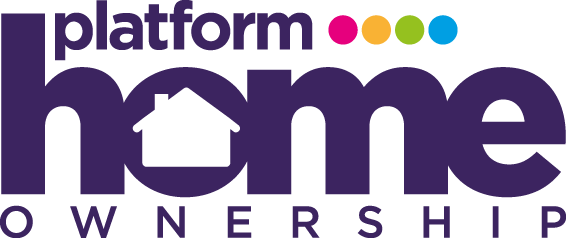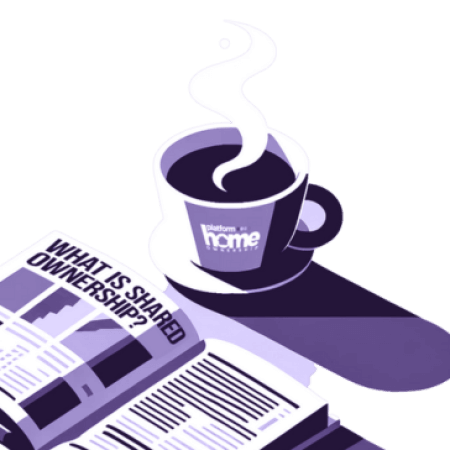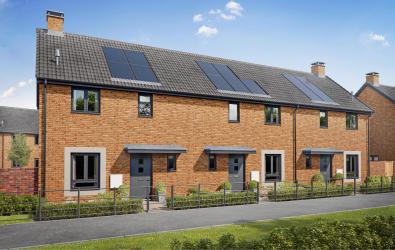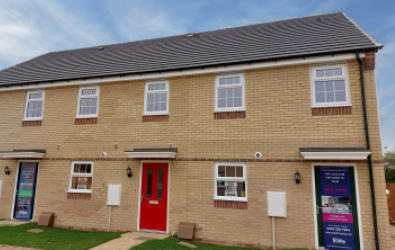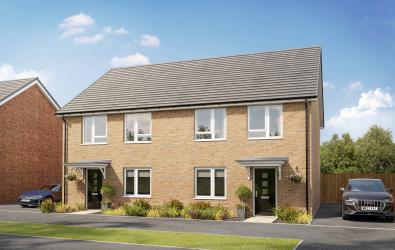
Property Jargon Buster
The Complete Platform Property Jargon Buster
This is a term used to describe housing provided outside of the general market to those with a housing need.
Affordable housing is mainly subsidised by the Government and examples of affordable housing include social rented housing, intermediate housing for sale and intermediate housing for rent.
A statement which confirms the loan amount they are willing to lend to prospective buyers subject to the approval of the property.
Air Source Heating is the concept of using an air source heat pump to absorb any of the residual heat from outside a building and then releasing it inside the building - similar to an air conditioner but in the opposite direction.
These pumps are increasingly used in homes as they're much more energy-efficient, reliable and effective at heating a property.
The term used to describe money that is overdue on your mortgage or rent account. If left unpaid, your lender may repossess your property.
This is an eligibility and affordability check to ensure the property is both affordable and sustainable for you to purchase.
This is another term for an electronic transfer between two banks. The two common forms of a BACS transfer are 'direct debit' and 'direct credit'. BACS is incredibly common across the UK.
Back Snagging is the follow-up to any initial 'snagging' that takes place within a property. It occurs just before the handover process and ensures that all parties involved are happy with the condition of the property, including the work that was raised during the initial snagging process.
The 'bank rate' is the interest rate set by the Bank of England. This is sometimes called the 'base rate' or simply referred to as 'interest rate'. It's the most important interest rate and banks across the country use this number to decide how much they individually charge customers to borrow money (such as mortgages) or pay on their savings.
A budget planner looks at your income and calculates how much you are spending each month to show you how much money you have remaining.
Alongside our surplus income policy, the planner will look at your gross income, gross deductions, regular commitments, housing costs, net income, mortgage payments and essential costs. It is intended to be used as a guide for mortgage advisor's to assess your affordability.
The finalisation of a sale when monies are transferred, and the buyer can officially take ownership of the property.
This is a statement that shows the amount of money a buyer owes the seller of a property when the sale is complete. This is typically sent several days several prior to the completion date to show the balance of monies required from the buyers solicitor in order to send those funds to the seller’s solicitor and complete the transaction.
Conveyancing is the name for any legal work involved in transferring property ownership from one party to another. It is carried out by a conveyancer. Conveyancing work may include contract exchanges, completions and other legal work.
If you purchase with Platform Home Ownership, for example, conveyancing is the transfer of ownership from us to you - carried out by solicitors with support from your personal sales consultant.
A statement that has information about your credit activity and current credit situation, including loan payment history and the current status of any credit accounts you hold.
A legal document that is signed and delivered to the buyer and acts as an official record and proof of ownership of a property.
A defect is an element of a property that is not performing its intended use. A defect may be uncovered during 'snagging' or raised following completion.
A dependant is a person that depends on you for financial support - typically a child or a person that cannot work for health or age reasons.
This is the amount of money you are required to pay upfront when you purchase your property.
Typically, this amount is between 5-10% of the value of the home you are purchasing. If you purchase 40% of a £240,000 home, the typical deposit amount would be between £4,800 - £9,800. You can put down a higher amount to reduce the mortgage amount on the property, if you have affordability to do so.
A disbursement is a fee that the solicitor or conveyancer pays on behalf of the buyer. Common disbursements include stamp duty, local authority searches, registry details and money transfer fees. Solicitors generally ask for an upfront fee that covers any disbursements.
This is a certificate that informs you of how efficiently a home uses energy. Rankings can be between A-G, with A being the most efficient. All homes sold through Platform Home Ownership have an EPC rating of B or above.
This is a term that describes the part of a property value without a mortgage against it. Equity is comprised of any increases in the overall price of the property, the deposit paid and any capital that has been paid off on the mortgage.
This is a term that describes the point of the purchase process where signed contracts are physically exchanged between buyer and seller. These contracts confirm the intention of transferring ownership and are legally binding. At this point, you'll typically have to pay your deposit and if you pull out of the deal after the exchange, your money is forfeited.
A mortgage where the interest rate is set to be the same amount for a period of time e.g. 5 years.
A fixture or fitting is a non-structural, fixed asset that is part of a property. An example of fixtures are lights, kitchen units, sockets and plumbing such as taps. Fixtures are typically included in the sale but this may be a part of negotiations.
These are drawings that indicate the size and layout of a property, there may be instances where property types may differ from the floorplan when you are purchasing off plan, so its always a good idea to speak to your Sales Consultant about the dimensions of the property you are interested in.
If you own the freehold of a property, it means you own both the property and the land it's on. Freehold is essentially outright ownership of a property. Platform owns the freehold on the majority of the properties we let or sell. Depending on how you purchase a property, you may have the option of acquiring the freehold.
Once a property reaches build completion stage, a handover takes place between the delivery team and sales. Around this time, you're usually invited to view your home. Handover is not your completion date, this will follow shortly afterwards. Handover dates are indicative and may be subject to change.
A Help to Buy agent was previously a government-appointed professional that supported buyers utilising the Help to Buy scheme. While Help to Buy is no longer available, Shared Ownership represents a great alternative for affordable home ownership.
This is a practical demonstration of the appliances, fixtures and systems within your home. This demonstration is usually performed by your sales consultant and will be accompanied by manuals.
Platform include Buildings Insurance within your rent of all our homes under shared ownership – your home is protected via our Group Policy until you purchase the freehold of your property, if your property is within a Protected Area Lease – we will continue to cover your Building.
This is a fee - usually expressed as either a monthly or annual fee - that is charged by a lender to the borrower as compensation for the potential loss of an asset. Interest is calculated as a percentage of either the total borrowed amount or the outstanding amount.
This is a specialist mortgage type where you only pay the interest charges each month, not any of the loan capital. The full mortgage is paid off at the end of the term. Please note that interest-only mortgages are not available for Shared Ownership.
A government database where ownership details of a property are kept
This is a contract where one party conveys property or services to another party for a specific amount of time in return for payment. In property, this is the deal with a landlord and specifies how many years you'll own the property. Ownership returns to the landlord when the lease ends.
In the case of Shared Ownership, the lease will be for the remaining share you are paying rent on.
If you own the leasehold, you own (or hold) the lease on a property for a set term, although you have no ownership of the land the property is on. An example of a leaseholder is all of the shared owners that we have here at Platform.
This is the final step in the legal process of transferring property ownership from the seller to the buyer.
This is a term used to describe the qualifying criteria for purchasing some of our Shared Ownership homes. They’re typically found in rural and smaller village locations to ensure affordable housing meets the needs of local residents as a priority.
A term which describes the use of modern materials to construct a building, as well as equipment and techniques that have created a quicker and more efficient way of providing new build homes.
MMC also produces lower carbon emissions compared to traditional ways of building, and so is considered more sustainable.
This is a clause present in a protected area lease. Once staircased to 81% or higher, Platform must buy the property back when the owner comes to sell - with a view of remarketing as a shared ownership property. This ensures the level of affordable housing in the local area is maintained.
This is a long-term loan provided by a bank or building society that is used to fund the purchase of a property, wherein the property is held as security. Successfully applying for a mortgage requires proof of income and a good credit score.
A guaranteed offer of a mortgage from a prospective lender.
A guarantee that is offered on some new build homes that covers defects for a specific time frame after construction. The typical warranty time is 10 years.
When a homeowner overpays on their monthly mortgage payment.
When a property owner dies and leaves the property in their will, probate is the process of proving the will is valid. The property is also valued, typically for inheritance tax purposes. Contracts cannot be exchanged on a property until probate is granted.
This is a shared ownership lease of a property inside a 'protected area' - predominantly in rural areas where social housing needs to be retained. The lease will require permit resales up to 80% and a mandatory buyback clause will be applicable on reselling after staircasing to 81% or higher.
An independent valuation by a surveyor registered with the Royal Institute of Chartered Surveyor (RICS) to determine the market value of the property. This valuation determines the full market value of Shared ownership properties prior to their release for sale. Most mortgage lenders conduct their own RICS survey. And a RICS valuation is also required if you staircase on your own property.
A government scheme that allows individuals to rent a new home at a reduced rental amount while providing them with the opportunity to buy the home during that time - whether through Shared Ownership or via an outright sale.
Reservation is typically a step in purchasing Off-Plan and very common with new build developments. It's the act of choosing your ideal plot and provides a number of benefits including regular updates.
This is a deposit you pay to secure the plot you want - typically when you buy off plan. This is a standard fee of £250 when you buy with Platform.
This is a specialist shared ownership lease on a property based in a 'protected area' - predominantly rural areas where social housing needs to be retained. With a restricted staircasing lease, it's not possible for a shared owner to staircase higher than 80%.
These are specific agreements made between a developer and a local authority:
Section 106 - An agreement between the developer and local authority, under the Town and Country Planning Act 1990. This usually includes the provision of public open space and contributions to local infrastructure to aid the sustainability of the community.
Section 104 - A legal agreement in which the developer completes the adoption of the sewers by the water authority.
Section 38 - A legal agreement in which the developer completes the adoption of the roads and footpaths by the local highways authority.
These are charges paid on a monthly/yearly basis for services arranged by Platform or an external management company e.g. buildings insurance, communal area cleaning or grounds maintenance.
Service Charge Budget - A yearly estimate of the above service charges, published by Platform or the Management Company at the beginning of their accounting year.
Service Charge Accounts - A yearly summary of actual expenditure by Platform or the Management Company for the year (may differ from the budget).
This is the process of buying more shares in your shared ownership property. The more shares you have in your home, the less rent you pay. Eventually, you can staircase until you own your home outright, which means you no longer pay rent to the housing association.
Stamp Duty Land Tax (often shortened to Stamp Duty or SDLT) is a mandatory tax you pay if you buy property over a certain price in England or Northern Ireland.
The amount of Stamp Duty you pay is based on thresholds and you're own independent circumstances. Currently, SDLT applies when you buy a property that costs:
- £250,000 for residential properties
- £425,000 for first-time buyers buying a residential property worth £625,000 or less
- £150,000 for non-residential land and properties
From April 2025, SDLT applies when you buy a property that costs:
- £125,000 for residential properties
- £300,000 for first-time buyers buying a residential property worth £500,000 or less
- £150,000 for non-residential land and properties
At this point, the rate of tax you pay depends on the value of the property. Currently, the rates are:
- Worth up to £250,000 = 0%
- £250,001 - £925,000 = 5%
- £925,001 - £1,500,000 = 10%
- £1,500,001 and above = 12%
From April 2025, the thresholds are as follows:
- Worth up to £125,000 = 0%
- £125,001 - £250,000 = 2%
- £250,001 - £925,000 = 5%
- £925,001 - £1,500,000 = 10%
- £1,500,001 and above = 12%
As an example, you buy a property after April 2025 worth £295,000. The SDLT you'll pay is:
- 0% on the first £125,000 = £0
- 2% on the second £125,000 = £2,500
- 5% on the final £45,000 = £2,250
- Total SDLT = £4,750
This is a form of rent that is lower than the standard market rent you'd find in a local area. The rent you pay on a shared ownership property is subsidised because you only pay rent based on the share amount you own.
A policy provided by a housing provider to set out the minimum amount of money (in £ and / or percentage terms) that a customer should have at the end of each month following the assessment of all elements of their income and expenditure.
A maximum amount should not be set as individual applicant circumstances need to be able to be accounted for. The policy should be clearly set out and readily available to customers and advisors.
A tenancy agreement is a legally binding contract between a tenant and a landlord.
The tenancy agreement lays out the legal terms and conditions of the tenancy and allows you to live in the property provided you pay the agreed rent and follow the agreed rules. It is usually a physical document and signed by both parties.
A tenancy can either be:
- fixed-term (running for a set period of time)
- periodic (running on a week-by-week or month-by-month basis)
This is the formal, legal ownership of a property in a document format. The document proves ownership and is stored electronically by the Land Registry.
This document officially finalises a sale and transfers the title of the property from seller to buyer. The transfer deed is signed at the same time as the contract documents and is sent to the Land Registry.
Services including electricity, gas, water and broadband. They are an important factor to understand when assessing the cost of running a home.
An official assessment of a property that determines its value. There are a number of factors taken into consideration, including location and condition. The valuation is carried out by the mortgage lender and is used to confirm the value of the property is what is being claimed. This usually incurs a valuation fee from your mortgage lender.
The person who is selling a property, sometimes referred to as a seller.
